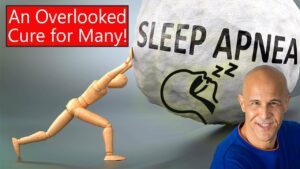In this video, the presenter discusses the biological processes that occur in the body when one stops eating. Contrary to the common belief that it is unhealthy to go without food for extended periods, the presenter explains that fasting can actually have benefits for the body. Initially, hunger pangs may be intense, but they can subside after the initial spike in the hunger hormone ghrelin. After about 24 hours, the body starts burning fat for energy instead of glucose, resulting in weight loss. Autophagy, a cellular cleanup process, is activated, benefiting the immune system, skin cells, and overall health. However, extended periods without food can lead to muscle loss, nutrient deficiencies, and organ failure, making proper nutrition essential.

Our Summaries are written by our own AI Infrastructure, to save you time on your Health Journey!
Key Insights:
- Skipping meals and practicing intermittent fasting can be natural and beneficial for the body, as humans have evolved to cope with cycles of food shortage and abundance.
- When you stop eating, your body will initially rely on glucose for energy. After around 24 hours, it will switch to burning fat for fuel, leading to gradual weight loss.
- The feeling of hunger during fasting depends on your body’s ability to burn fat for fuel. Those accustomed to fasting may not experience intense hunger cravings.
- While fasting, your body will reduce protein breakdown rates to prevent muscle loss. However, extended periods of fasting can lead to muscle loss, particularly for lean individuals.
- After a few days of fasting, your body activates autophagy, a cellular cleanup process that helps reduce inflammation and promotes better skin and immune functions.
- Going without food for weeks or months can lead to malnutrition, weakening the immune system and increasing the risk of infections.
- As fasting continues, your body breaks down muscle, fat, and glucose until it begins to slow down or shut down organs to conserve energy.
- Fasting for short periods, ranging from 16 to 72 hours, can have benefits for fat loss, productivity, immunity, and brain function. However, fasting for longer periods can have severe negative effects.
Transcript
It’s well known that when you eat, your body begins a series of biological processes to digest and use the nutrients found in that food. This helps repair muscles, create new cells, and even store some extra fuel as fat for later use. But it’s not common knowledge that when you don’t eat, your body enters a completely different series of biological processes that are just as necessary and beneficial.
Contrary to conventional advice, which tells you that it’s unhealthy to go for long periods of time without food, the truth is that there’s nothing natural about eating five or six meals spread out evenly over the hours that you’re awake. Throughout history, our ancestors had to cope with cycles of food scarcity and abundance, leading to a fasting and feasting eating cycle that is actually more natural. Our bodies have developed metabolic pathways to help us cope with prolonged periods without food.
When you stop eating, one of the first things that will happen is you’ll start to feel an unpleasant feeling of hunger. This feeling can vary in intensity depending on how accustomed your body is to burning fat for fuel. Most people regularly eat a high carb diet, so their bodies primarily rely on glucose for energy. But your body also has the ability to store fatty acids as body fat, which can be used for energy later. However, your body can only store a limited amount of glucose, and it gets depleted within about 24 hours of fasting.
After the initial spike in hunger caused by the release of the hunger hormone ghrelin, your body will switch to burning fat for fuel. If your body is not efficient at burning fat, this can lead to severe cravings, especially for high carb foods. However, if you’ve trained your body to use fat for fuel through a low carb or ketogenic diet, or through long duration fasting, you won’t experience the same severity of hunger cravings.
As your body continues to fast, it will burn through your remaining glycogen stores and switch almost entirely to burning fat for fuel. This will lead to weight loss over time. Your body can convert triglycerides from fat stores into glycerol and free fatty acids. The free fatty acids can be used immediately for energy, while the glycerol can be converted into glucose through a process called gluconeogenesis. This can temporarily supply the brain with the glucose it needs without breaking down muscle tissue.
Contrary to popular belief, your body will actually reduce its protein breakdown rates after just 24 hours of fasting to prevent muscle loss. However, after a few days of not eating, muscle loss can occur, especially if you’re already relatively lean. If you continue to go without food for weeks or months, your muscle loss will accelerate.
Going without food also triggers a series of metabolic events in your body. After a couple of days, your body activates a cellular cleanup process known as autophagy, which helps reduce inflammation and fight diseases. Autophagy can also potentially slow down aging in skin cells and improve the immune system. However, after a few weeks without food, malnutrition can set in, and your immune system becomes weaker.
Further into starvation, your body will continue breaking down muscle, fat, glucose, and even bones until it is forced to slow down or shut down organs to save energy. Eventually, if you go long enough without food, you will die, most likely from organ failure.
In summary, fasting for short periods ranging from 16 to 72 hours can have benefits such as fat loss, improved productivity, boosted immunity, and improved brain function. However, going without food for longer than three days can result in negative effects like muscle loss and rapid decline in overall health.
(Note: The transcript has been reformatted for better readability)





